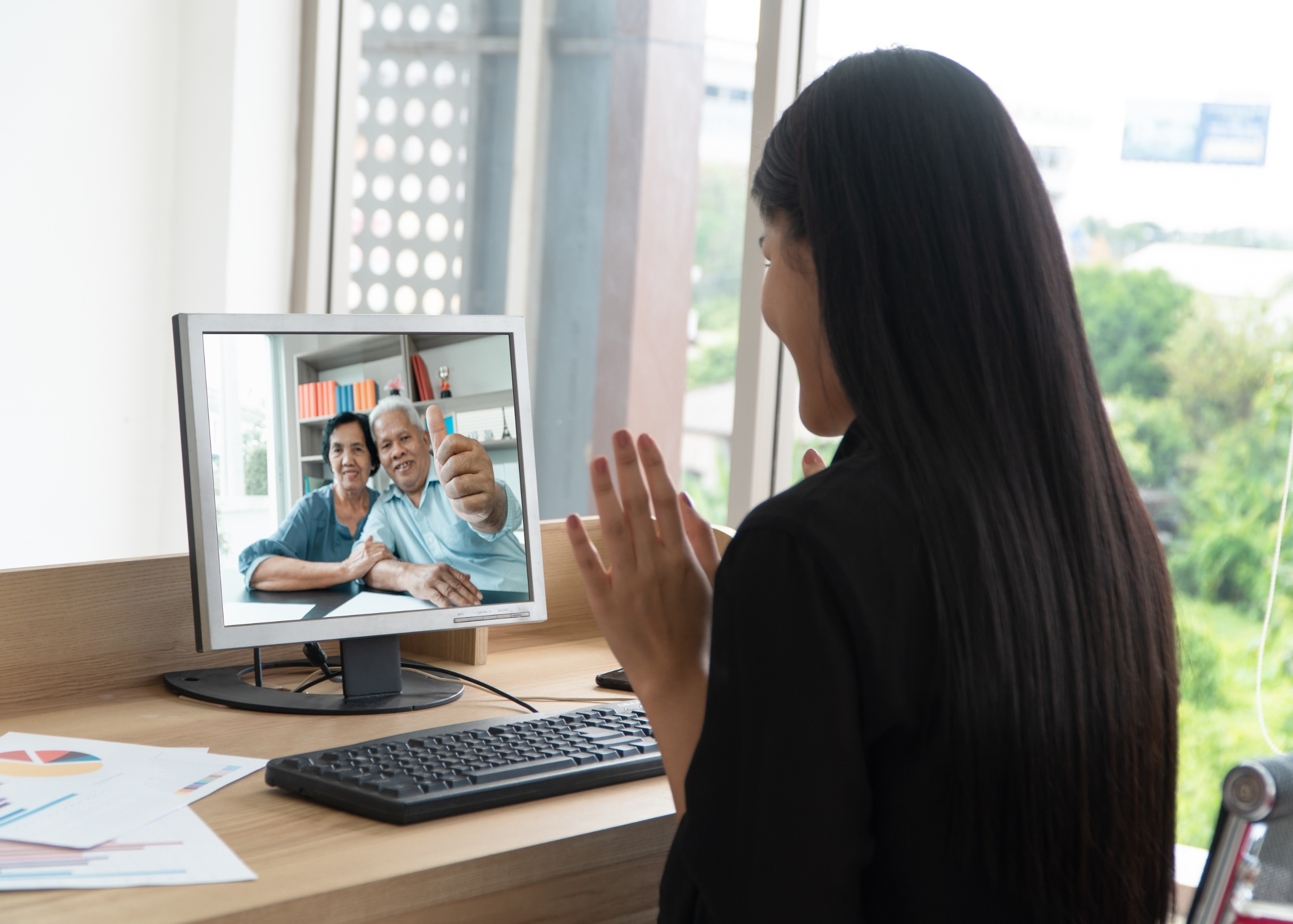Caring for a loved one with dementia is never easy. And when you live in a different city—or even a different state—it can feel overwhelming, emotionally draining, and at times, helpless. But long-distance caregiving is both possible and impactful with the right systems, support, and mindset in place.
At Full Bloom Memory Care®, we’ve worked with many families navigating dementia from afar. Whether your loved one lives independently, with family, or receives in-home support, this guide shares expert-backed strategies to help you provide compassionate, consistent care—even from a distance.
Understanding the Role of a Long-Distance Caregiver
You don’t need to be physically present every day to make a difference. Long-distance dementia caregivers often play a key role in:
-
Coordinating medical and care services
-
Managing finances and legal matters
-
Offering emotional support through phone or video calls
-
Monitoring health and wellbeing from afar
-
Planning visits and providing respite to local caregivers
The key is staying engaged, organized, and communicative.
1. Build a Local Care Team You Trust
If you can’t be there every day, someone else must. This might include:
-
Professional in-home caregivers, ideally with advanced dementia training
-
A care manager or care coordinator to act as your eyes and ears
-
Neighbors, friends, or community members willing to check in
-
Healthcare providers, therapists, and clergy
Establish clear roles and routines with this team. Ensure there's a go-to person for emergencies, and request regular updates.
Tip: Ask for weekly check-in reports or care notes. Dedicated memory care agencies offer consistent care team assignments and clear communication protocols to keep family members informed.
2. Leverage Technology for Connection & Oversight
There’s no substitute for a warm hug—but video calls and smart tools can keep you connected.
-
Use FaceTime or Zoom for regular “face-to-face” time
-
Set up medication reminders with tools like Medisafe
-
Install smart home devices (with consent) to monitor movement or activity
-
Use shared Google Calendars for appointments and caregiver visits
-
Consider apps like CareZone or Lotsa Helping Hands to coordinate tasks with others
Pro tip from care managers: Keep tech simple—especially if your loved one is still using devices themselves. A tablet with one-touch call buttons can reduce confusion.
3. Stay Proactive with Medical and Legal Planning
Even from afar, you can:
-
Join telehealth visits with providers
-
Review medical records through patient portals
-
Maintain up-to-date advance directives and power of attorney documents
-
Help track medications, appointments, and health changes
Make sure all providers have your contact information. Having a HIPAA release on file allows doctors to speak with you directly.
4. Create a “Visit with Purpose” Plan
When you do visit, make it count:
-
Schedule any needed appointments in advance
-
Spend time with your loved one doing familiar, comforting activities
-
Offer respite to local caregivers—give them a break
-
Observe changes in behavior, hygiene, mobility, or cognition
-
Have important conversations in person when possible
Care expert tip: Keep visits low-stress. Short, meaningful moments are more valuable than trying to “fix” everything during one trip.
5. Emotional Support Matters, Too
Dementia can be lonely—for both the person experiencing it and their caregivers. Regular emotional check-ins go a long way:
-
Call or send voice memos regularly
-
Mail cards or care packages with photos and comforting items
-
Share music playlists, favorite books, or past memories
And don’t forget to care for yourself, too. Long-distance caregiving can bring guilt, grief, and anxiety. Connect with a therapist or caregiver support group to process what you’re going through.
6. Know When to Consider Extra Support
Sometimes, local family or friends can no longer meet the level of care required. If you're starting to wonder whether more help is needed, look for signs like:
-
Worsening memory loss or confusion
-
Missed medications or meals
-
Safety concerns (wandering, falls, leaving the stove on)
-
Caregiver burnout in those nearby
This may be the time to consider specialized in-home memory care or a professional care management assessment to evaluate the best next steps.
Caring from afar is an act of deep love and commitment. While it brings unique challenges, it also offers opportunities to be a thoughtful advocate, organizer, and emotional anchor in your loved one’s dementia journey.
At Full Bloom, we specialize in supporting families—whether you live down the street or across the country. Our care team partners with long-distance caregivers to ensure transparency, consistency, and compassion at every step.
Need help managing dementia care from a distance?
We’re here to support you. Contact us for a free consultation or to learn more about our person-centered approach to in-home dementia care.




